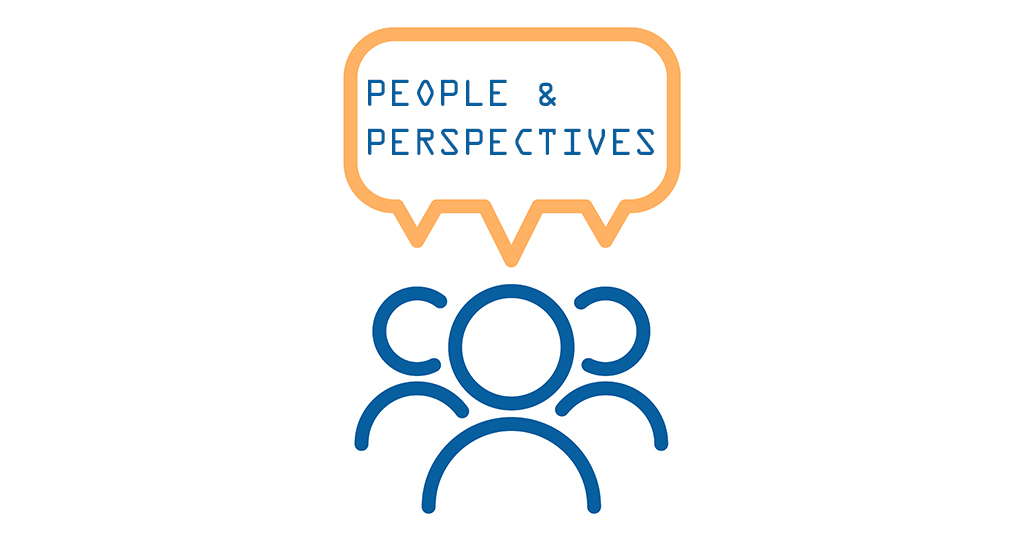What’s One Piece of Advice You’d Pass on to Anyone Contemplating Becoming an HR Consultant?
In every issue of PeopleTalk magazine, we ask CPHR BC & Yukon members from all across B.C. and the Yukon a question and get them to give us a brief answer.
Today’s question: What’s One Piece of Advice You’d Pass on to Anyone Contemplating Becoming an HR Consultant?
Here are five pieces of advice for anyone contemplating HR consulting as a career.
 Lee Vincent, CPHR
Lee Vincent, CPHR
Whitehorse, Yukon
President
Visionary Seeds Inc.
Before you consider becoming an HR consultant, I recommend that you consider this step the same way that you would consider entering into any other business—develop a business case. Becoming an HR consultant means that you are shifting from being an expert in HR to a business person that happens to deliver a service related to human resources. In addition to your strengths in HR, you also have to become comfortable with business development, marketing, finance, contracts and project management.
You want to step back and think about what kind of HR work you want to do as a consultant. What is your competitive advantage? How do you feel about working alone versus as part of a team? Are you comfortable financially without a steady paycheque? What is your true motivation to become a consultant and how will you stay true to that? Is there a way that you can test the waters and experiment?
Being an HR consultant is not for everyone. I personally love it for the diversity of work that I get to do, the amazing people that I work with and the fact that I learn something new everyday.
 Cissy Pau, CPHR
Cissy Pau, CPHR
Vancouver, B.C.
Principal Consultant
Clear HR Consulting Inc.
The majority of people who pursue education in the HR field are trained to become employees within organizations. Few HR professionals learn to be entrepreneurs or business owners of an independent HR consultancy. A new skill set is required, in addition to sound HR knowledge.
My top piece of advice for anyone looking to become an independent HR consultant is to develop a business plan prior to starting. A business plan will help determine all aspects of operating your own business including:
- Your unique service offering
- The market demand and target audience for your services
- Research into other companies already operating in your market
- Your plan to market your services
- Financial requirements, start-up costs and cashflow projections
- Key risks and opportunities
- External assistance required A good business plan allows you to anticipate problems and reduce potential pitfalls and headaches down the road.

Jerome Dickey, CPHR
Richmond, B.C.
Principal
Agile Work Solutions
Know your strengths. Think about where you can best leverage those strengths in HR consulting to help people and organizations be successful. What skills, activities and experiences in HR have you most enjoyed working at? For some people, recruiting may provide that daily spark of energy yet for others maybe its labour relations, and still for others its learning and development. Alternatively, some may value being generalists. Know where you shine.
The CPHR Competency Framework with its nine functional areas of knowledge and five enabling competencies can serve as a mini road map for some reflection. Additionally, consider taking a strength assessment such as StrengthFinders and together with the competency framework, determine what areas of consulting you might like to focus on. Consulting can be very rewarding, with exposure to broader workplace trends, new challenges and learning, all while meeting many interesting people along the way.
 Edith Hockley, CPHR
Edith Hockley, CPHR
Coldstream, B.C.
HR Consultant
HR Management Solutions
I made the shift to full-time consulting when my personal life’s circumstances changed, and I became a caregiver for three senior family members.
Shifting to consulting provided the opportunity to have flexibility around the schedule of care needs—not the typical journey and so much I learned along the way. You need to understand that you are embarking on a business. Ideally, you have a business and marketing plan, you’ve thought about your brand and mission and vision and you understand your strengths and where you hope to focus. HR is broad and can be overwhelming trying to serve all areas. My advice: believe and trust that you have something to offer, be yourself, know your strengths, listen and understand your client needs, and build relationships—your network and your client relationships.
 Jay Sharun, CPHR
Jay Sharun, CPHR
Kelowna, B.C.
CEO
National Collective Bargaining Institute
Most consultants are Jacks and Jills of all trades and masters of none.
Those who work outside their depth of knowledge/experience give bad advice, lose clients, and permanently ruin their reputations. Organizations demand expert advice so the Cadbury secret for aspiring consultants is to specialize and differentiate.
While it was difficult to do as a newcomer, I turned away plenty of HR consulting work that was not related to labour relations. After 20+ years of focus, I have negotiated more than 650 collective agreements and received CPHR’s Provincial Award of Excellence for Innovation in the field of labour relations.
I have further differentiated myself from competitors by staying current on best practices for collective bargaining, both nationally and even internationally. Consultants can only remain relevant by utilizing the most modern and cutting-edge approaches.
So find your niche and hang out your shingle! I look forward to welcoming the next generation of consultants!
For the latest HR and business articles, check out our main page.
Reader Feedback
We want to hear from you!
Do you have a story idea you’d like to see covered by PeopleTalk?
Or maybe you’ve got a question we could ask our members in our People & Perspectives section?
Or maybe you just want to tell us how much you liked the article.
The door is always open.









